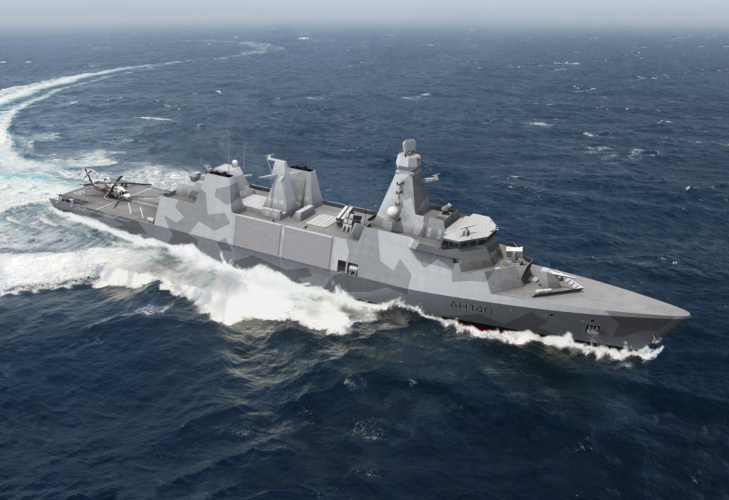Despite being one of UK engineering’s biggest, most respected and most enduring names, it’s probably fair to say that Babcock International Group doesn’t immediately spring to mind as one of its most nimble innovators.
And that’s not a bad thing. Indeed, when your core business is managing critical assets ranging from nuclear power stations to warships, it’s probably better be viewed as a safe pair of hands than as a risk-taking technology swashbuckler.
And yet, as the firm’s technology director Dr Jon Hall recently told The Engineer, the company’s key role of finding ever more effective ways to boost the performance and efficiency of assets across its key sectors of defence, civil nuclear and the emergency services is in fact driving a significant level of innovation.

“We’ve generally got big expensive, complicated assets with a long, long lifecycle,” Hall said. “If you want to get more life out of an advanced gas reactor you’ve got to think what are the tools and techniques we can apply to justify getting more life out of it? If you look at Type 23 frigates, past their design life, what are all the ways we can get more capability on the ship?”
At the same time, the firm is also tasked with hitting some pretty demanding cost-reduction targets: around 25 – 30 per cent in naval maritime support, and as much as 30 per cent in nuclear new build.
You get to the point where you need to make a bit of a step change, and the data and digital enablement is about making that next step
It’s a hugely challenging balancing act, and one of the keys to pulling it off, said Hall, has been the growing application of data and digital technologies. “We’ve been up that curve of the easy savings in terms of working more effectively, by people doing their jobs a bit faster, and so on. But you get to the point where you need to make a bit of a step change, and the data and digital enablement is about making that next step that gets us the extra ten to fifteen per cent improvement in cost.”
Babcock wins £1.25bn Type 31 frigate contract
Inside Babcock's emergency vehicle simulator
Babcock and University of Edinburgh partner on new composites facility
In a world where data has become something of a buzzword, Hall was keen to stress exactly what it means for Babcock. “What you generally hear about is the big data stuff: throw me petabytes of data and I’ll find patterns in it and tell you how to sell more Coke cans. But there’s no engineering insight in that. With the sort of stuff we look at either data is not fully available or is of poor quality, so we find ways of putting that together with a white box model where we’ve got a system engineering understanding of the asset. We know what’s important and what will probably affect the performance and maintainability and cost of it and we can plug the right data together with that understanding.”

At the heart of Babcock’s offering in this area is the concept of the digital twin: a digital representation of a physical asset updated using real-time data, which helps engineers to understand the performance, efficiency and status of the asset.
While Digital twin technology is now used widely across the business, one particularly striking illustration of the technology in action is its use in the operation and maintenance of one of The Royal Navy’s most powerful weapons: the 4.5 inch gun used on all of its destroyers and frigates.
Hall explained that by using digital twinning to constantly gather data about the performance of the system, Babcock engineers are able to constantly monitor the performance of the gun, spotting emerging faults before they become an issue and optimising maintenance operations accordingly.
Unsurprisingly, digitalisation will also be at the heart of Babcock’s work on the Royal Navy’s new Type 31 Frigate, for which it won preferred bidder status earlier this year. Hall said that investments in the Babcock’s Rosyth dockyard will see the vessels “built in a way that transforms how ships are built” and talks of a digital thread that encompasses everything from the design of the vessel right through to the so-called iFrigate data analytics system that will support them once they take to the sea.
A very different, but no less eye-catching, showcase for Babcock’s data expertise is its development of a specialised drone designed to help aerial emergency services fight wildfires.
Developed by the group’s innovation team in Spain, Lua (Light Unmanned Aircraft) - which has a payload capacity of 7kg and is capable of several hours of autonomous flight – is an impressive piece of flight hardware. But it’s the drone’s role as part of a joined-up data system that will help emergency services direct fire-fighting assets, and even feed into real-time simulation that will predict the behavior of a fire, that’s the key innovation.

Whilst digital solutions are increasingly at the heart of everything Babcock does, Hall is keen to stress that the technology is nothing without the people. Ultimately, he said, it’s about using technology to empower engineers to make informed decisions quickly. “There’s lots of underpinning investment in ERP systems and data systems, and lots of investments in digital twins, but all that is there ultimately to lead towards something that lets you make better decisions for or with your customer. The most important thing of all is that it gets us close to the customer…that the customer is sat there with us sharing the same data on the same data platform with us enabling them to make better decisions.”
Nevertheless, the growing importance of digital technology is having an impact on the types of skills that the company requires, and while there’s always going to be a need for mechanical engineers or electrical engineers, Hall pointed to a growing requirement for non-traditional areas of expertise. “If you look back a couple of years, only in niche parts of our business were we recruiting data scientists and cyber analysts, but now that’s a real career path for us, and we’re developing a scheme where people can join Babcock as a data scientist and have a career path and move around the business.”
There’s lots of underpinning investment in ERP systems and data systems...but all that is there ultimately to lead towards something that lets you make better decisions for or with your customer.
With data science skills in huge demand across a variety of sectors, industry has faced some well publicised challenges competing with trendy tech startups for the brightest young minds in the field. But whilst Hall admits that Babcock has had to think creatively about how to engage with this emerging generation of experts he believes that engineering is increasingly being seen as an attractive destination. “It’s a really hot market. We’ve got offices in nice locations and all the cliched things you’d expect with some tech teams - If you go into their office you’ll be shot at with a Nerf gun! But we do find in the engineering space we’re attracting a different sort of graduate who I think is motivated by what the outcome is. Do they want to go and do data science that enables Mike Ashley to sell more tracksuits? Or do they want to do data science that keeps the aircraft carriers at sea? I think there’s a cohort of people that wants to be in a big engineering organisation and be able to do all that funky stuff. It’s a hot market, but we’ve got our arms around some of the most exciting big assets, so I think that makes Babcock an attractive place.”




Poll: Should the UK’s railways be renationalised?
I _do_ remember British Rail - and that it was <i>literally</i> a national joke https://youtu.be/zV2lmSDKvO8